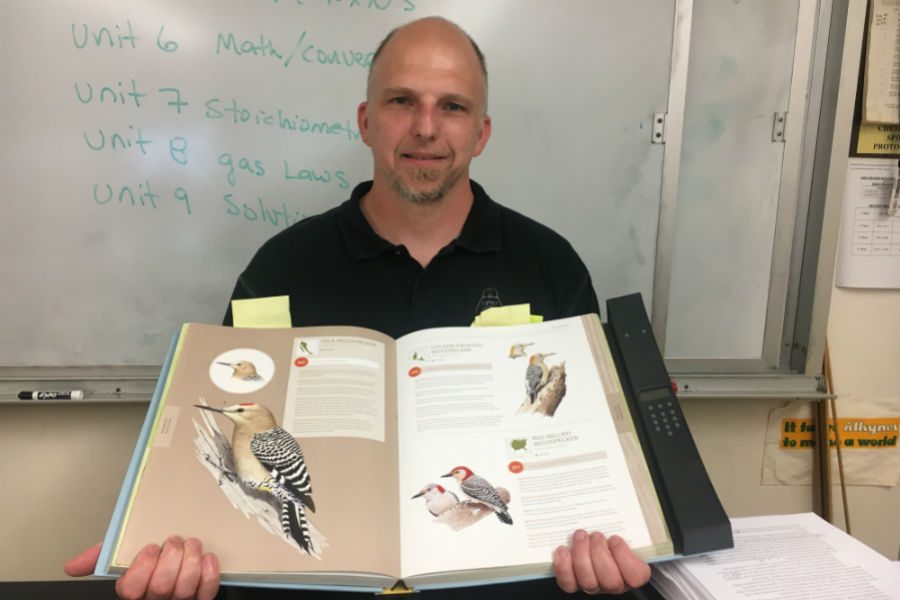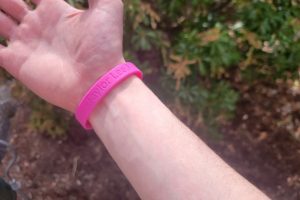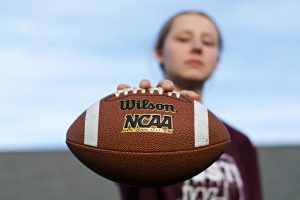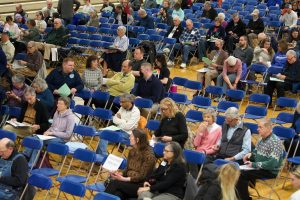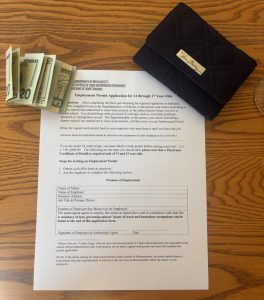Knittel flocks to birding
June 17, 2018
Finding faculty members with original and unusual hobbies is not always a common occurrence. One of these faculty members is Chemistry teacher Timothy Knittel, who has become an avid birder over the last couple of decades.
People unfamiliar with birding often believe it is the same as bird-watching, but Knittel puts emphasis on the difference between the two activities. Bird-watching is much more leisurely, where participants sit and relax while looking out for birds. Birding, on the other hand, is more competitive and active, and birders often venture out to habitats to find and identify different species, with the goal of getting more species than other birders.
“There are people that will go out on the first day of the year and get as many species as they can,” Knittel said.
There are multiple online lists where birders can post their sightings. Each sighting includes information such as the date, location, and proof of the sighting. Common birds only need a call or sounds as proof while rare or unusual works require a picture. Lists can be over the course of a month, a year, or someone’s life. Many such sites exist, but the ones Knittel uses are the Cornell Lab of Ornithology and eBird.
Knittel’s interest in birding originally stemmed from his father. He was not a birder but was interested in birds. He was familiar with the common species and able to mimic the calls.
“It started with that, and then I didn’t really pick it up until I was out of college, and being competitive, I’m always looking for ways to beat people,” Knittel said.
Knittel began to bird in his early twenties and has been birding for about fifteen to twenty years. He never was interested in just bird-watching but liked the active and competitive nature of it.
As of today, Knittel has identified around 350 species and can identify about 100 by their call.
“It’s a big difference. For example, I go for walks during the day here and I can identify most of what I hear,” Knittel said.
Aside from being educated about different bird species, Knittel has learned to respect and protect habitat more. He knows what birds need to survive, and how destroying their habitats can destroy them. Furthermore, there is a code of ethics regarding the birds and their habitats that all birders need to be familiar with.
“I have a really good understanding, I think, of, […] like when you cut a tree down, what does that really mean,” Knittel said.
Knittel used to be able to go out for half a day just to bird or would spend hours memorizing bird calls. However, having a family, a house and a job do not allow him much time for his hobby anymore. The most he has been able to do recently is take walks or go into his yard.
“Unfortunately, owning a house and having children […] most of my time goes into all of that,” Knittel said.
Knittel hopes to get back to birding, although he cannot say when he can commit. He mentioned the Big Year, a term used by birders for a year where one can go out to habitats and bird the entire time. Knittel will not be able to go on the Big Year, but he has plans to go out West to places such as Yellowstone National Park over the summer. Each, year Knittel tries to add a few birds to his list, so he is optimistic about this trip.
“This is what I’m excited about. I’ll get a new list for Colorado and South Dakota and Wyoming. I’ve never found any birds there before,” Knittel said.
The only prize for birding is being able to correctly identify a bird, but for Knittel, the competitiveness and the learning experience is all that he needs to keep pursuing the hobby.
“There’s no reward, just satisfaction, that you went out and you saw a new bird you can identify them. For most people, that’s crazy,” Knittel said.

